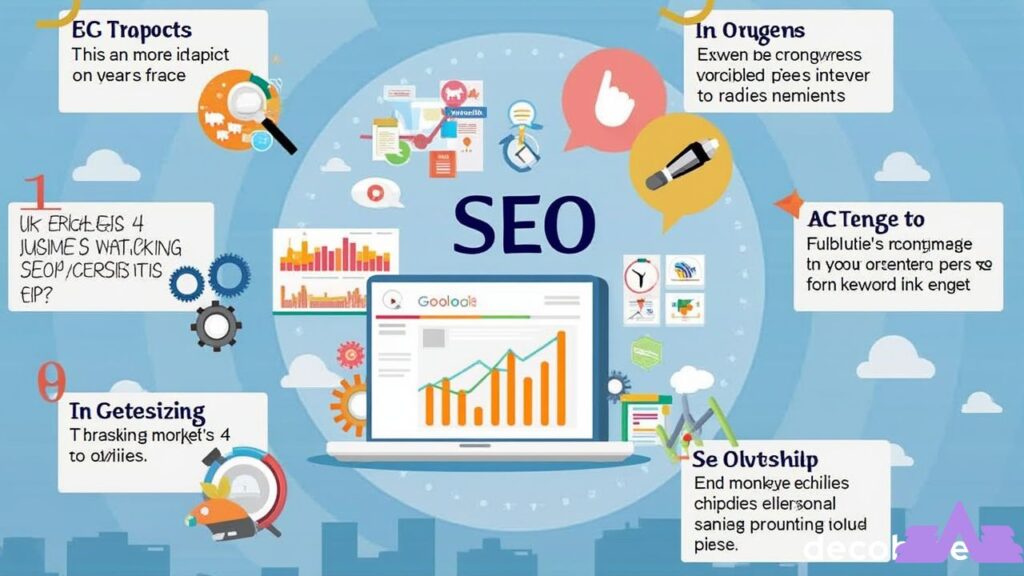In today’s digital age, having a website is just the beginning of your online journey. If you want your website to thrive and attract the right audience, you need to ensure it’s optimized. That’s where SEO for Website Optimization comes in. Search Engine Optimization (SEO) is the process of improving your website’s visibility on search engines like Google, Bing, and Yahoo. Without proper SEO, even the most beautifully designed websites can fail to attract visitors.

This blog will guide you through the essentials of SEO for Website Optimization, discuss the tools available, compare SEO and website optimization, and show you how to analyze and optimize your website effectively. Whether you’re a beginner or someone looking to improve your current website’s performance, this guide is for you.
Table of Contents
What Is SEO for Website Optimization?
SEO for Website Optimization is the process of tailoring your website to rank higher in search engine results. This means using the right keywords, creating quality content, and ensuring your website is fast and user-friendly.
For example, when someone searches for “best Keyword Research tool under $50,” search engines like Google scan through billions of pages to show the most relevant results. By optimizing your website for SEO, you can make sure your content appears at the top of these results, driving traffic to your site.
Why Is SEO for Website Optimization Important?
If your website isn’t optimized, search engines may not even know it exists. Here’s why SEO is crucial:
- Increased Visibility: SEO improves your website’s chances of being discovered by your target audience.
- Better User Experience: A well-optimized website is faster, easier to navigate, and mobile-friendly.
- Higher Credibility: Websites that rank on the first page of search results are perceived as more trustworthy.
- Cost-Effective Marketing: Unlike paid ads, SEO generates organic traffic, saving money in the long run.
How to Get Started With SEO for Website Optimization
Getting started with SEO for Website Optimization doesn’t have to be overwhelming. Follow these steps to begin:
1. Conduct SEO Optimization Website Analysis
Before making changes, you need to understand your website’s current performance. Use tools like Google Analytics, SEMrush, or Ahrefs to analyze your website’s traffic, keywords, and backlinks.
- Traffic Analysis: Find out how many visitors come to your site and from where.
- Keyword Analysis: Identify the keywords your audience is searching for.
- Technical Analysis: Check for broken links, slow page speeds, or other technical issues.
2. Choose the Right Keywords
Keywords are the foundation of SEO. Tools like Google Keyword Planner can help you find the best keywords for your niche. For example, if you run a bakery, keywords like “best cakes in [your city]” or “custom birthday cakes” can attract local customers.
3. Create High-Quality Content
Content is king when it comes to SEO for Website Optimization. Your content should:
- Be original and relevant to your audience.
- Use keywords naturally without overstuffing.
- Include images, videos, and infographics to engage readers.
4. Optimize On-Page Elements
On-page SEO refers to the elements you can control directly on your website. These include:
- Title Tags: Use your target keyword in the title.
- Meta Descriptions: Write a compelling description for search results.
- Headers: Use H1, H2, and H3 tags for better structure.
- Alt Text for Images: Describe images to make them searchable.
5. Improve Technical SEO
Technical SEO ensures search engines can crawl and index your site effectively. Focus on:
- Website speed.
- Mobile optimization.
- Secure connections (HTTPS).
Top SEO Tools for Website Optimization
Using the right tools can make your optimization journey much easier. Here are some popular SEO Tools for Website Optimization:
- Google Analytics: Analyze traffic and understand user behavior.
- SEMrush: A comprehensive tool for keyword research and competitor analysis.
- Yoast SEO: Ideal for optimizing WordPress websites.
- Ahrefs: Great for backlink analysis and keyword tracking.
- GTmetrix: Check and improve your site’s loading speed.
SEO VS Website Optimization: What’s the Difference?
Many people confuse SEO with website optimization, but they are not the same:
- SEO (Search Engine Optimization) focuses specifically on improving a website’s ranking on search engines.
- Website Optimization is a broader term that includes improving user experience, page speed, design, and overall functionality.
While SEO is a part of website optimization, the latter encompasses a wide range of strategies to enhance overall site performance.

Advanced SEO Strategies for Website Optimization
Once you’ve mastered the basics, it’s time to dive into advanced tactics:
- Build Quality Backlinks
Backlinks are links from other websites to yours. High-quality backlinks can boost your site’s credibility and ranking. - Focus on Local SEO
If you’re a local business, optimize your site for local searches by creating a Google My Business profile. - Optimize for Voice Search
With the rise of virtual assistants like Alexa and Siri, optimizing for voice search can give you an edge. - Monitor User Behavior
Use tools like Hotjar to track user behavior and identify areas for improvement.
Common Mistakes to Avoid in SEO for Website Optimization
- Keyword Stuffing: Overloading content with keywords can harm your ranking.
- Ignoring Mobile Users: Ensure your website is mobile-friendly.
- Neglecting Analytics: Regularly analyze your performance and make data-driven decisions.
Conclusion
SEO for Website Optimization is an ongoing process that requires time, effort, and the right strategies. By conducting regular SEO optimization website analysis, using the right SEO tools, and focusing on both on-page and off-page elements, you can improve your website’s visibility and user experience. Remember, SEO and website optimization work hand in hand, but understanding their differences will help you approach them effectively. Start small, stay consistent, and watch your website climb the search engine rankings.
FAQs
Q. What is SEO for Website Optimization?
SEO for Website Optimization is the process of improving your website to rank higher on search engines and attract more visitors.
Q. Which are the best SEO tools for website optimization?
Some of the best tools include Google Analytics, SEMrush, Ahrefs, Yoast SEO, and GTmetrix.
Q. How often should I conduct an SEO optimization website analysis?
Perform an analysis at least once a month to monitor your progress and make necessary adjustments.
Q. What is the difference between SEO and website optimization?
SEO focuses on improving search engine rankings, while website optimization focuses on overall site performance and user experience.



